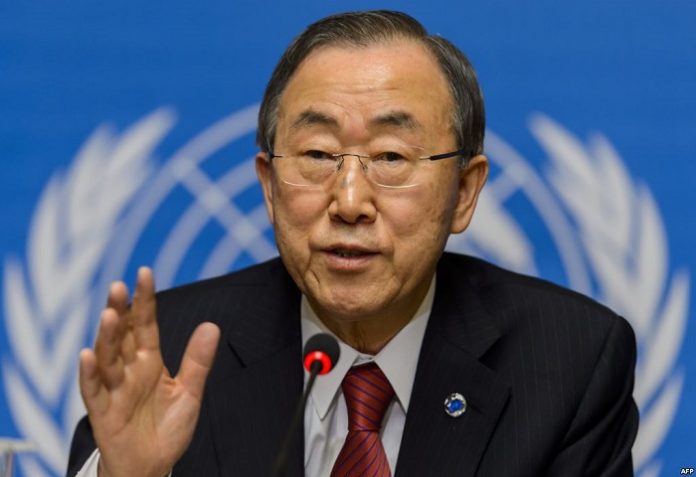UN Secretary-General Ban Ki-moon met today with Rafael Correa, the Constitutional President of the Republic of Ecuador, which will host the third United Nations Conference on Housing and Sustainable Urban Development (HABITAT III) from 17 to 20 October 2016.
At a press conference at UN Headquarters in New York, Ban expressed confidence that HABITAT III will result in the adoption of a “New Urban Agenda” to promote more sustainable human settlements.
Noting that the conference takes place during first year of implementing the 2030 Agenda for Sustainable Development, he said “the success of this ambitious endeavour will be largely determined by how we live in, design and manage our cities.”
The Secretary-General noted that “more than half the global population lives in urban areas” adding that “when planned, built and governed well, cities can be massive agents of positive change. They can be catalysts for inclusion and powerhouses of equitable economic growth. They can help us protect the environment and limit climate change.”
Correa called for “new alternatives, new solutions” as “the lifestyles we are living these days are not sustainable and can gravely affect the planet” and a new urban agenda for “living in harmony with other human beings, with culture, with nature itself.”
He said “we need cities that offer opportunities to all; that commit to the eradication of poverty; facilitate social inclusion, and in their relationship with the rural sector, promote agricultural development and food security in order to find a balance between urban development and the protection of nature’s rights.”
In Resolution 66/207 and in line with the bi-decennial cycle (1976, 1996 and 2016), the United Nations General Assembly decided to convene, the Habitat III Conference to reinvigorate the global commitment to sustainable urbanization, to focus on the implementation of a New Urban Agenda, building on the Habitat Agenda of Istanbul in 1996.
Member States of the General Assembly, decided that the objectives of the Conference are to secure renewed political commitment for sustainable urban development, assess accomplishments to date, address poverty and identify and address new and emerging challenges. The conference will result in a concise, focused, forward-looking and action-oriented outcome document.


